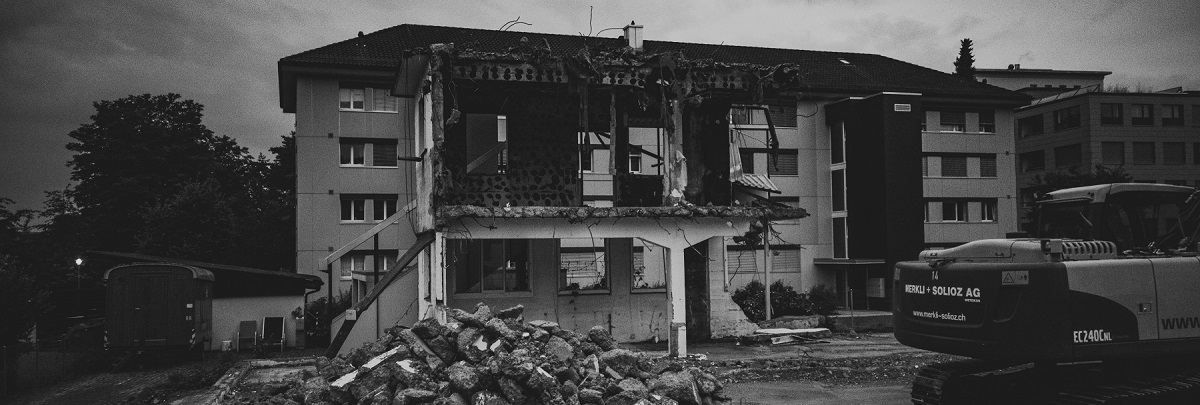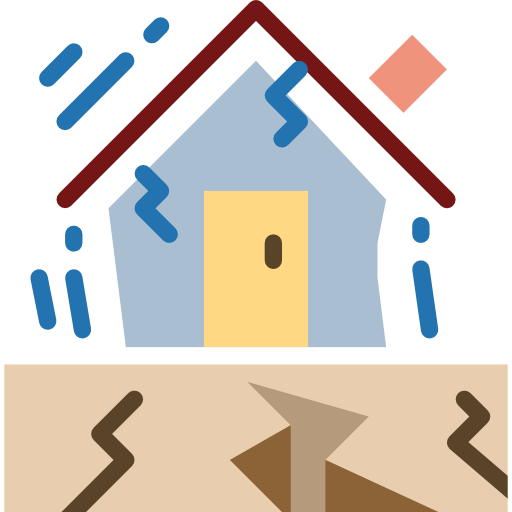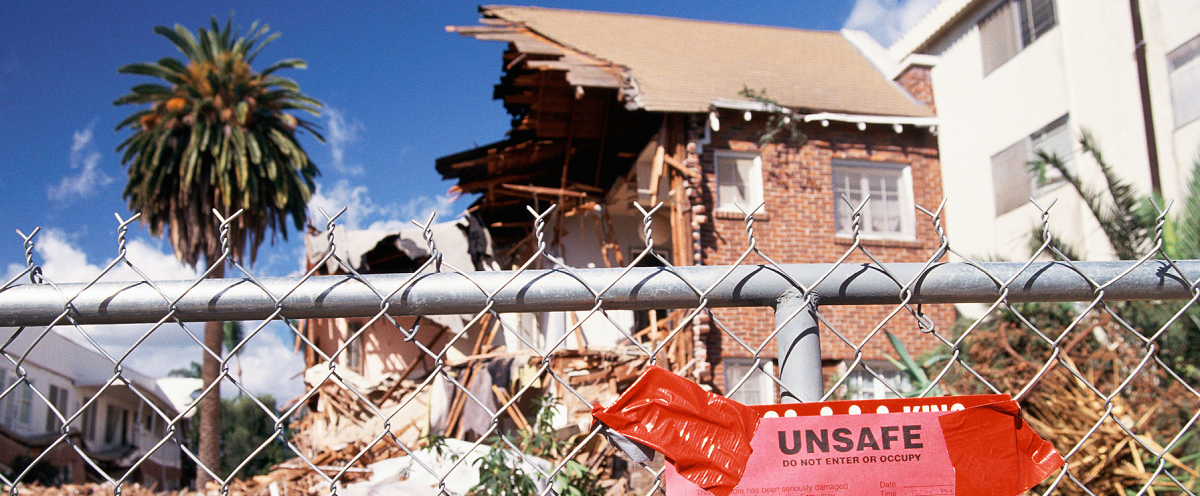Do I Need Earthquake Insurance?
The most intimidating thing about natural disasters is that you don't know when they will happen. This fact is precisely the reason why you need to be prepared in case they strike since such incidents in a minute could destroy what you've been building for a whole life. Therefore, let's talk about earthquake insurance.

Not every state or zone is equally prone to earthquakes, but either way, such a catastrophe can cause severe consequences to people’s homes, property, belongings, and most importantly, their lives. When something like that happens, people are not sure what their next step is, especially if they need to find another place to live due to repairments that must be done on their homes. The costs of food, moving and repairment can be extremely high, and even homeowners and property insurance can’t help you – in order to repair all the damage caused by an earthquake, you must be insured with earthquake coverage about which you’re going to learn now.
What is Earthquake Insurance?
You can include earthquake coverage to your insurance policy if you want to protect yourself from paying for the damage caused by the earthquake. Since neither homeowners nor property insurance includes the financial compensation in case of earthquake or flood, such policies need to be purchased separately, which opens the debate on the topic Is earthquake insurance worth it? As every debate, both sides have some valuable and persuasive arguments to prove they're right. The same is with earthquake coverage.
The truth is that people don't like to waste money on something optional, especially if there's a little chance that they'll need it. That's entirely reasonable, especially if the product or service is costly.
On the other hand, purchasing earthquake insurance can actually save you from paying a lot of money out of your pocket. Even though people usually think that such catastrophes won’t happen to them, it’s never bad to get insured.
In most states, insurers are obliged to offer you a coverage that will protect you from earthquake costs, and it’s up to you whether you’re going to take it or not.
What Is Covered With Earthquake Policy?
As mentioned, this type of insurance will cover the damages caused by the earthquake, including:- Repairs – All the repairs that need to be done on your home and attached structures, including a garage.
- Belongings – If your TV, computer, furniture or clothes get damaged, the policy will recompensate the costs of replacement.
- Additional living expenses – This part of the policy is vital since the costs of hotel and food will be covered in case you need to leave your home due to repairments.
- Fire – The fire caused by an earthquake is already included in your homeowners' policy, and it won’t be reimbursed.
- Vehicle damage – To cover damage on your vehicle, you'll need to have comprehensive auto insurance.
- Floods – Floods require a separate policy that’s aimed at solving problems caused by excessive water. So, even if the flood is the consequence of the earthquake, it won’t be covered.
- Sinkholes – This type of damage also requires a separate policy which you can add to your homeowners' insurance.
- Masonry – The brick, stone, or rock that's used for your home's façade is not included in the earthquake policy.
How Much is Earthquake Insurance?
The cost of earthquake insurance depends mostly on the zone you live in. If your state is prone to earthquakes, the price will be higher, and if you’re in the lower-risk region, you can expect to pay less. California, Alaska, and Hawaii are among the 42 states that are most prone to the earthquake in the USA, and if you live in some of them, you should consider earthquake policy. For example, in California earthquake insurance price is about $437 per month, while some states with higher risk may require you to pay even more. On the other hand, if your state is not prone to earthquakes, the price can be much lower.
Apart from geographical aspects that are the most prominent factor that determines the price, there are some more things that you should consider:
- The age of your home and the number of stories (including the basement) – Newer homes are made of better materials that are more resistant to earthquakes than the older ones, which is why it’s cheaper to insure them. Also, taller houses are more prone to damaging and the policy will be more expensive for such constructions.
- Home materials – Homes with wooden frames are cheaper to insure because they are more elastic than other materials, as well as those that are built on sandy soil instead of clay or rock.
- Retrofitting – If you retrofit your home (add new technology or features to old systems), you are more likely to lower the earthquake insurance cost. All the work you do will add more stability to your home, making it less prone to serious damages.
RELATED READING:
• Fundamental Facts About Renters Insurance Every Tenant Should Know
• Ultimate Guide to Homeowners Insurance
• Property and Casualty Insurance – Protect Your Stuff from Perils and Accidents
• Umbrella Insurance – Protect Yourself from Excessive Costs
• The 5 Essential Liability Insurance Policies You Should Know About
• What is Restaurant Insurance and Why You Should Have It Before Opening
• Do I Need Boat Insurance While Sailing Across the Country
• Car Insurance 101 – Only Guide You Need
• 10 Ultimate Tricks on How to Lower Car Insurance
• What are the 7 Factors that Impact the Cost of Car Insurance Policy
Should I Buy Earthquake Insurance?
As you know, this type of insurance isn’t obligatory, and the choice is up to you. Earthquakes can happen everywhere, even in the states with lower risk, but if you live somewhere where such disasters happen frequently, it’s recommended to take the policy. If we take California as an example, we'll see that that's the state where residents buy more earthquake insurance policies than residents of other countries in the USA. After the series of destructive earthquakes that affected the state of California, all insurance companies must offer earthquake coverage whenever someone’s buying a homeowners policy. Accordingly, if you live in a high-risk zone, it would be better to get the policy, and if you are not, talk to your insurer and calculate the risk and the price and see whether it is worth buying the coverage. Still, before you make your final decision, ask yourself the following questions:- Can I afford to repair or rebuild my home if it’s completely damaged?
- Can I afford to live somewhere else until while my home is uninhabitable?
- Can I afford to lose all that I’ve been working hard for?

What are the Most Common Misconceptions about Earthquake Insurance Coverage?
The negative opinions about this type of coverage are mostly based on the next statements:- The deductible is too expensive, and the policy won’t pay out
- The government will give me a hand
- The policy is too pricey
- My home is new, and there is no risk of damages
H&M Insurance Agency – The Best Earthquake Insurance California Can Offer
Instead of leaving things to fate, let us create you a unique insurance policy that will kick in when you need it most. H&M Insurance Agency works with the most sophisticated companies, such as Safeco, FirstComp and Markel, making sure our clients are protected from any inconvenience that may happen. If you are looking for the best earthquake insurance San Diego brings, don’t hesitate to give us a call at (619) 296-0005 and we’ll be happy to craft the policy that meets your needs.
